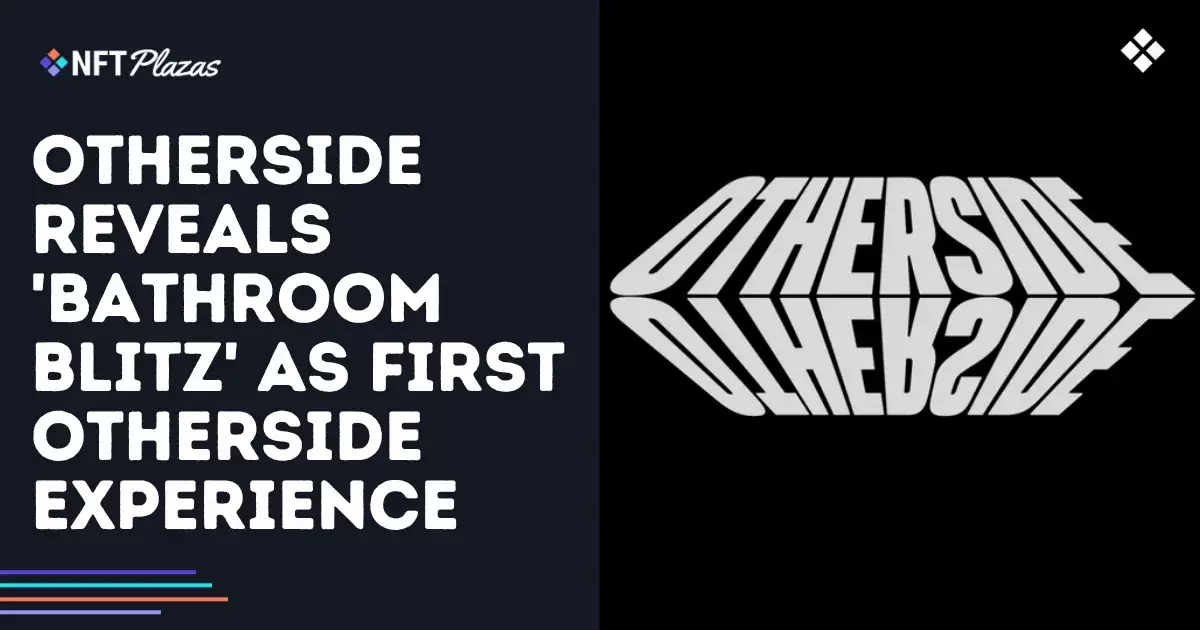Yuga Labs’ latest announcement for the Otherside metaverse reveals a highly anticipated feature—a multiplayer shooter called Bathroom Blitz, set within a stylized BAYC bathroom. On the surface, this represents innovation: a persistent, always-online space in a sprawling NFT gaming ecosystem. However, beneath this veneer lies the troubling reality of NFT projects that promise grand immersive environments but deliver fleeting, gimmicky experiences. Bathroom Blitz is touted as a proving ground for Otherside’s live service infrastructure, yet it feels like a thinly veiled marketing exercise, leveraging BAYC’s brand power to mask shallow gameplay and an unproven, nascent platform. The supposed persistence is vulnerable to the same volatility and hype cycles plaguing NFTs, begging the question—how stable and meaningful can these “virtual worlds” truly become?
Superficial Engagement Tracking Masks Deeper Failures
Yuga Labs introduces the Voyager XP system alongside Bathroom Blitz, intended to measure player activity and reward engagement. While a progression system is standard fare in gaming, embedding it as a core feature of Otherside’s ecosystem seems less about player experience and more about artificially inflating “stickiness.” XP tracking in this context feels like an attempt to manufacture value and encourage continued interaction in what is essentially a speculative bubble masquerading as entertainment. Rather than empowering players or fostering genuine community, such systems risk reducing participation to a shallow game of numbers, incentivizing grind without meaningful rewards or content depth—a criticism often leveled at NFT gaming as a whole.
Social Hubs: A Facade of Community Interaction
Expanding the Clubhouse (now rebranded Meet Me at the Clubhouse) to support 500 concurrent users is used as evidence of social progress within Otherside. Yet, increasing capacity doesn’t equate to cultivating authentic connection. The promise of deeplink integration and chat bubbles is a nod to modern social media mechanics but feels more like window dressing than innovation. In a space flooded with hype and financial speculation, genuine human connection often becomes collateral damage. The question remains: are these features designed to foster meaningful social interaction, or simply to amplify the illusion of a vibrant community while monetization and market dynamics dominate?
Developer Tools: Democratization or Controlled Monopoly?
Yuga Labs claims that external developers will gain access to nearly 1,000 in-game assets from all 29 Otherdeed biomes, alongside tools for sticker, emote, and object creation. While at first glance this appears to democratize content creation, a deeper look suggests these “creator tools” are more about consolidating control. By embedding royalty structures into creations, Yuga Labs ensures a perpetual revenue stream, effectively gating user creativity within a corporate framework. This raises concerns about the true openness of the platform—despite claims of empowerment, creators remain constrained by the platform’s rules and monetization models, which prioritize profit over genuine innovation or user-driven culture.
The Fantasy of Long-Term Viability in a Speculative Sector
Otherside Outbreak, slated for August as the next persistent experience following Bathroom Blitz, illustrates the platform’s fragile attempts to test concurrency and infrastructure under pressure. Yet, these trials underscore a systemic issue in NFT gaming: scalability and stability are unproven at best. The reliance on iterative testing and feedback gathering appears more reactive than strategic, exposing a project grappling with technical and conceptual challenges that mainstream gaming has long since solved. In a market rife with volatility and overvaluation, the dream of a seamless, lasting metaverse feels more like a PR narrative than a likely reality.
—
Ultimately, Yuga Labs’ ambitious rollout on Otherside underscores a paradox central to NFT gaming—it promises revolutionary virtual worlds but delivers incremental, often superficial features cloaked in hype. The focus on engagement tracking, social expansion, and creator tools prioritizes monetization strategies over player agency and meaningful experience. From a center-right liberal perspective, this exemplifies the risks inherent when speculative capitalism hijacks cultural production: innovation becomes subordinated to market imperatives, and genuine community-building is sacrificed at the altar of profit and control. NFT gaming projects like Otherside are a cautionary tale not just for gamers, but for anyone seeking lasting value in digital economies dominated by hype-driven bubbles rather than sustainable, user-centered design.

